A community of 3,466 international relations scholars from 20 countries believes that East Asia is the world’s region of greatest strategic importance to their nations today.
That was a key finding from the 2011 TRIP survey, published recently by the Institute for the Theory and Practice of International Relations (TRIP) at the College of William & Mary. The survey, which was sent to all international relations (IR) scholars in the countries surveyed, included nearly 90 questions on the IR discipline, as well as respondents’ research, teaching and foreign policy views.
Three members of the Institute’s staff authored the survey, the largest ever undertaken on the discipline of international relations. They are: Sue Peterson, Wendy and Emery Reves professor of government and international relations and co-director of the Institute; Michael Tierney ‘87, director of International Relations, Hylton associate professor of government and co-director of the Institute; and Daniel Maliniak ’06, a Ph.D. student at the University of California, San Diego and a principal investigator on the project.
In 2008, 27 percent of all respondents named East Asia as the region of greatest strategic importance to their nations. That percentage of i
nternational scholars rose to 34 percent in the 2011 survey, with 57 percent of all respondents saying that East Asia will be the most strategically important region in 20 years.
Among U.S. scholars, the percentage responding that East Asia is the most strategically important region today rose from 30 percent in 2008 to 46 percent in 2011.
“That’s a big change from our last survey,” Peterson said. “A combination of things is responsible for the change, especially the growing recognition of China’s economic power and the concurrent U.S. withdrawal from a major military conflict in the Middle East, which in 2008 had dominated not only U.S. academics’ responses, but those in a lot of other English-speaking communities.
“The majority of scholars always said that in the long run East Asia would be the most important region, but we’ve reached that long run more quickly than we thought. The reduction of U.S. commitments in Iraq and Afghanistan allowed scholars to turn their academic attention to East Asia.”
More scholars in the United States cited the rising power of China as one of the most important foreign policy issues facing our country over the next ten years than listed any other issue.
Scholars also were asked to rate U.S. and Chinese influence on a scale of 1 to 10. At 4.34, China lags well behind the United States today at 6.63, according to survey respondents. By 2020, however, IR scholars predict that this gap will narrow considerably with the United States at 5.68 and China close behind at 5.28.
“At the same time that IR scholars are concerned about the implications of China’s rising power relative to the United States,” Tierney noted, “they are not overly worried about the possibility of out-and-out conflict between the U.S. and China.”
When survey respondents were asked to rate on a scale from 1 to 10 the likelihood of war between these two great powers, they put the chance of conflict at 1.33 today and 2.28 over the next 30 years.
The 2011 survey, funded by Arts and Sciences and the Reves Center for International Studies at the College and the Carnegie Corporation of New York, is updated and expanded compared to previous surveys.
In 2004, the only International Relations scholars surveyed were from the United States. In 2006, respondents from Canada were added. In 2008, the survey added eight more English-speaking countries.
The 2011 survey includes all of the above, plus scholars from Argentina, Brazil, Colombia, Denmark, Finland, France, Mexico, Norway, Sweden and Turkey. The total number of respondents from the 20 countries, representing five different languages, was 3,466 scholars, or 49.5 percent of the 7,001 scholars surveyed. No country had a response rate below 36.6 percent.
“We weren’t the first to ask some of these questions,,” Peterson said, “but TRIP is increasingly recognized as the most comprehensive, most extensive, data collection ever undertaken in the field of international relations.”
“IR scholars who want to study the IR discipline and the relationship between the theory and practice of IR,” Tierney added, “increasingly turn to TRIP for data. One of our major goals is to help provide this public good for the discipline.”
A major paradox revealed by the survey is that, while East Asia is seen by most scholars as having the greatest strategic importance today and in 20 years, the region is relatively unstudied and untaught by international scholars.
In the United States, only nine percent of the responding scholars labeled East Asia as the “main” region of the world they study. Among all scholars, that number is just seven percent.
Peterson explained that there were several reasons for the disparity, among them: TRIP surveys scholars of international relations, not comparative politics, who may be more likely to develop an expertise in the history, culture and language of a particular country or region; and IR scholars who study the foreign policy of East Asia need to spend many years immersing themselves in the study of regional languages and politics.
On the teaching side, Peterson found less obvious reasons for the disparity between what scholars believe is the world’s strategically most important region and what faculty teach.
Only 34 percent of faculty respondents devote one or more classes in their undergraduate international relations courses about East Asia, less than those who teach about the Middle East and North Africa (37 percent) and Western Europe (43 percent). Among U.S. international relations scholars, 40 percent said they devote one or more classes to a discussion of East Asia, while 44 percent do the same for both the Middle East and North Africa and Western Europe.
“I would have expected more faculty to use case studies and current events to teach about various regions of the world, including East Asia,” Peterson said. “The numbers of faculty who teach about East Asia simply doesn’t match the importance that IR scholars attach to the region. We need to close that gap.”
The entire 2011 TRIP survey can be found here.

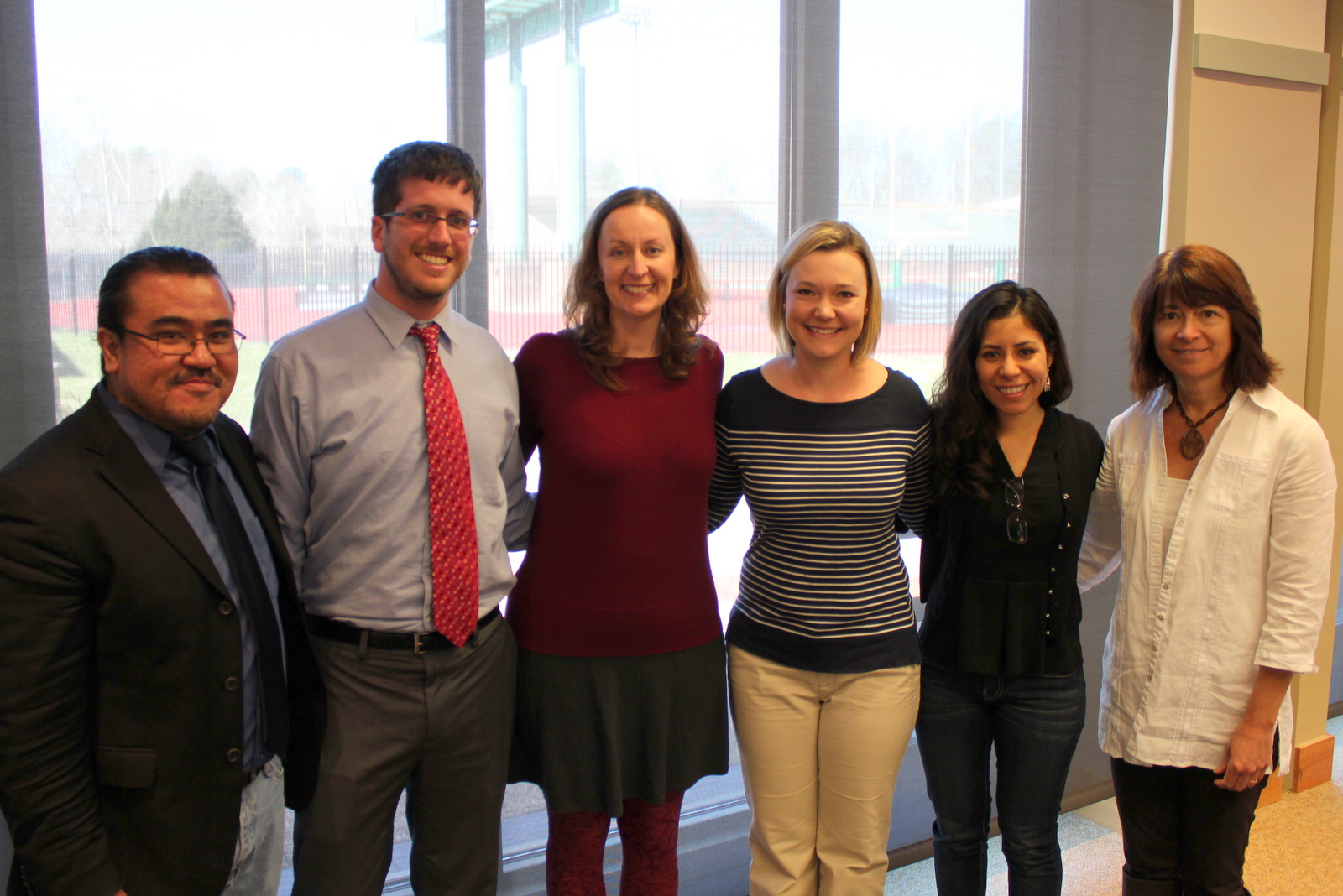










 The event will be held on Saturday, March 22nd, 12:00 -4:00 pm, McGlothlin Street 20.
The event will be held on Saturday, March 22nd, 12:00 -4:00 pm, McGlothlin Street 20. Professor Yanni Kotsonis (Department of History, New York University) will give his presentation on Thursday, March 20, 4:00-5:30 pm, Washington Hall 201.
Professor Yanni Kotsonis (Department of History, New York University) will give his presentation on Thursday, March 20, 4:00-5:30 pm, Washington Hall 201. Professor Russel Zanca (Northeastern Illinois University) will give a talk on Thursday, March 13th, 5:00pm, Tucker 127A.
Professor Russel Zanca (Northeastern Illinois University) will give a talk on Thursday, March 13th, 5:00pm, Tucker 127A. Our congratulations to Rachel Faith who has been awarded the 2014 National ACTR Post-Secondary Russian Scholar Laureate Award. Way to go, Rachel! 🙂
Our congratulations to Rachel Faith who has been awarded the 2014 National ACTR Post-Secondary Russian Scholar Laureate Award. Way to go, Rachel! 🙂 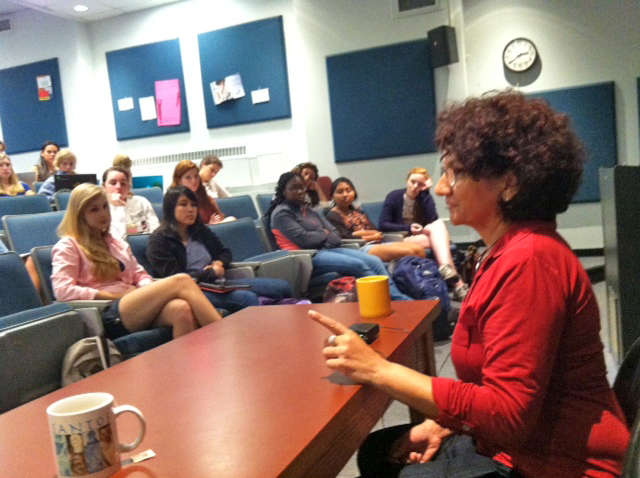


 The first handbook of fashion studies and a work that has been heralded as “essential” reading by folks at some of the top design schools, among others, is hot off the press. At almost 700 pages, it can be added to the list of books published by members of our department. This project began in 2008. It was an international project, too.
The first handbook of fashion studies and a work that has been heralded as “essential” reading by folks at some of the top design schools, among others, is hot off the press. At almost 700 pages, it can be added to the list of books published by members of our department. This project began in 2008. It was an international project, too.

 Soyoung Kim was born and raised in South Korea. She started learning Japanese in high school, and continued her study at William & Mary by taking four years of language classes. Since she loves to watch Japanese movies and listen to J-pop, she really enjoyed studying the language. In her senior year, she also took a Japanese-English translation class with Professor Knighton. Although she had been learning Japanese and watching Japanese movies, it was her first time doing translation. She learned how to be a creative translator in the class even though neither Japanese nor English was her mother tongue. Soyoung majored in International Relations and is very interested in the Asia-Pacific region After graduation, she is going back to South Korea to look for work enhancing relations among the Asia-Pacific countries. She expects her experience at the College and her Japanese skills to be very helpful in achieving her future goals. The Japanese section wishes Soyoung luck as she moves forward and congratulates her on this well-deserved award.
Soyoung Kim was born and raised in South Korea. She started learning Japanese in high school, and continued her study at William & Mary by taking four years of language classes. Since she loves to watch Japanese movies and listen to J-pop, she really enjoyed studying the language. In her senior year, she also took a Japanese-English translation class with Professor Knighton. Although she had been learning Japanese and watching Japanese movies, it was her first time doing translation. She learned how to be a creative translator in the class even though neither Japanese nor English was her mother tongue. Soyoung majored in International Relations and is very interested in the Asia-Pacific region After graduation, she is going back to South Korea to look for work enhancing relations among the Asia-Pacific countries. She expects her experience at the College and her Japanese skills to be very helpful in achieving her future goals. The Japanese section wishes Soyoung luck as she moves forward and congratulates her on this well-deserved award.







































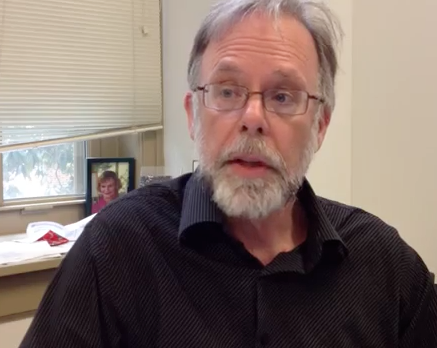
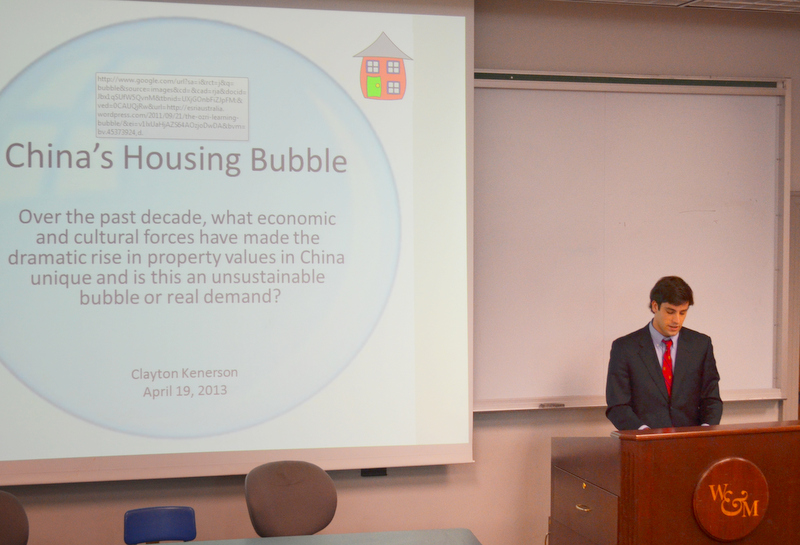




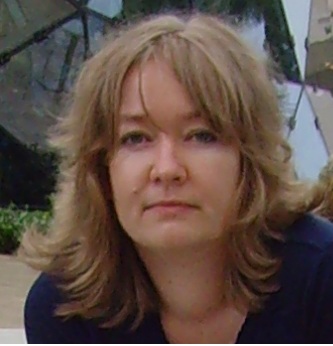




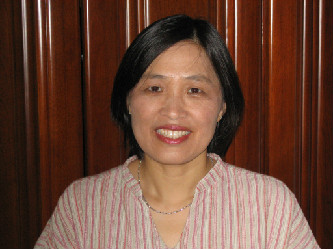
 Yanfang Tang is a Professor of Chinese Studies in the Department of Modern Languages and Literatures at the College of William and Mary. She is the Director of the Chinese Studies Program and also serves as the Director of the Confucius Institute at the College.
Yanfang Tang is a Professor of Chinese Studies in the Department of Modern Languages and Literatures at the College of William and Mary. She is the Director of the Chinese Studies Program and also serves as the Director of the Confucius Institute at the College.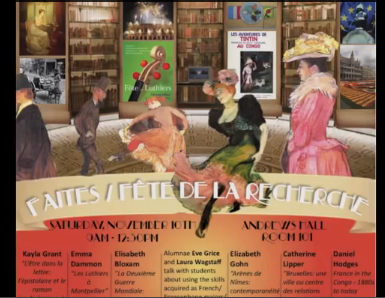

 When I came to William and Mary I never imagined that by the time of my senior year I would be completing a research paper in Italian. I took only the bare minimum required by my high school, and as a result was required to complete 4 semesters at the College. At first, it was rough; I’ll never forget my first day of class freshman year when I walked into the room and Professor Angelone addressed everyone in lively Italian- I couldn’t tell you what she said, naturally. At the completion of my required study, I was at a crossroads- could I let those two challenging and rewarding years be for naught? I had come to respect and love the language, and enjoy studying the culture. At the beginning of my junior year, I made the decision to embark on an internship in Florence through
When I came to William and Mary I never imagined that by the time of my senior year I would be completing a research paper in Italian. I took only the bare minimum required by my high school, and as a result was required to complete 4 semesters at the College. At first, it was rough; I’ll never forget my first day of class freshman year when I walked into the room and Professor Angelone addressed everyone in lively Italian- I couldn’t tell you what she said, naturally. At the completion of my required study, I was at a crossroads- could I let those two challenging and rewarding years be for naught? I had come to respect and love the language, and enjoy studying the culture. At the beginning of my junior year, I made the decision to embark on an internship in Florence through 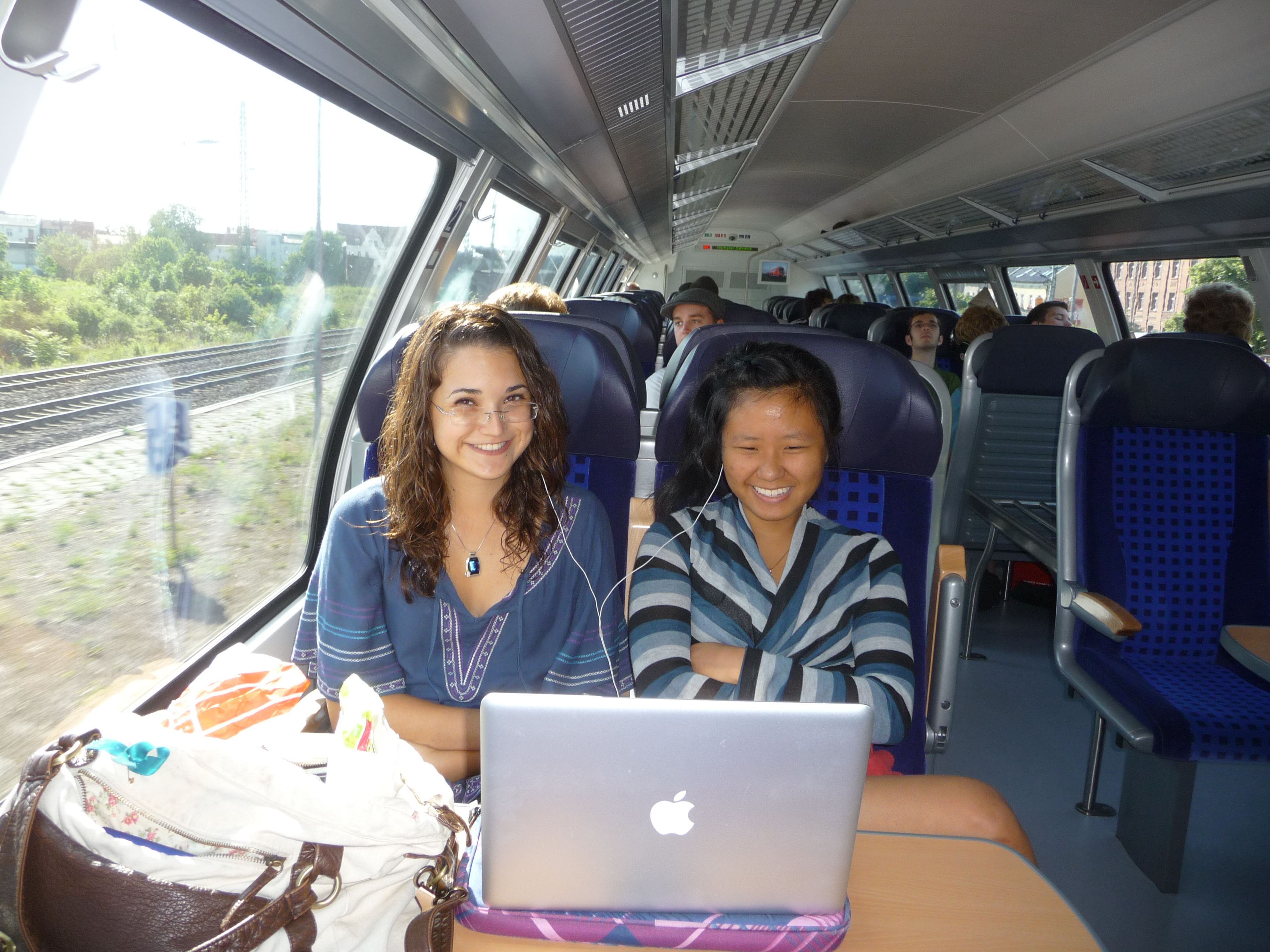











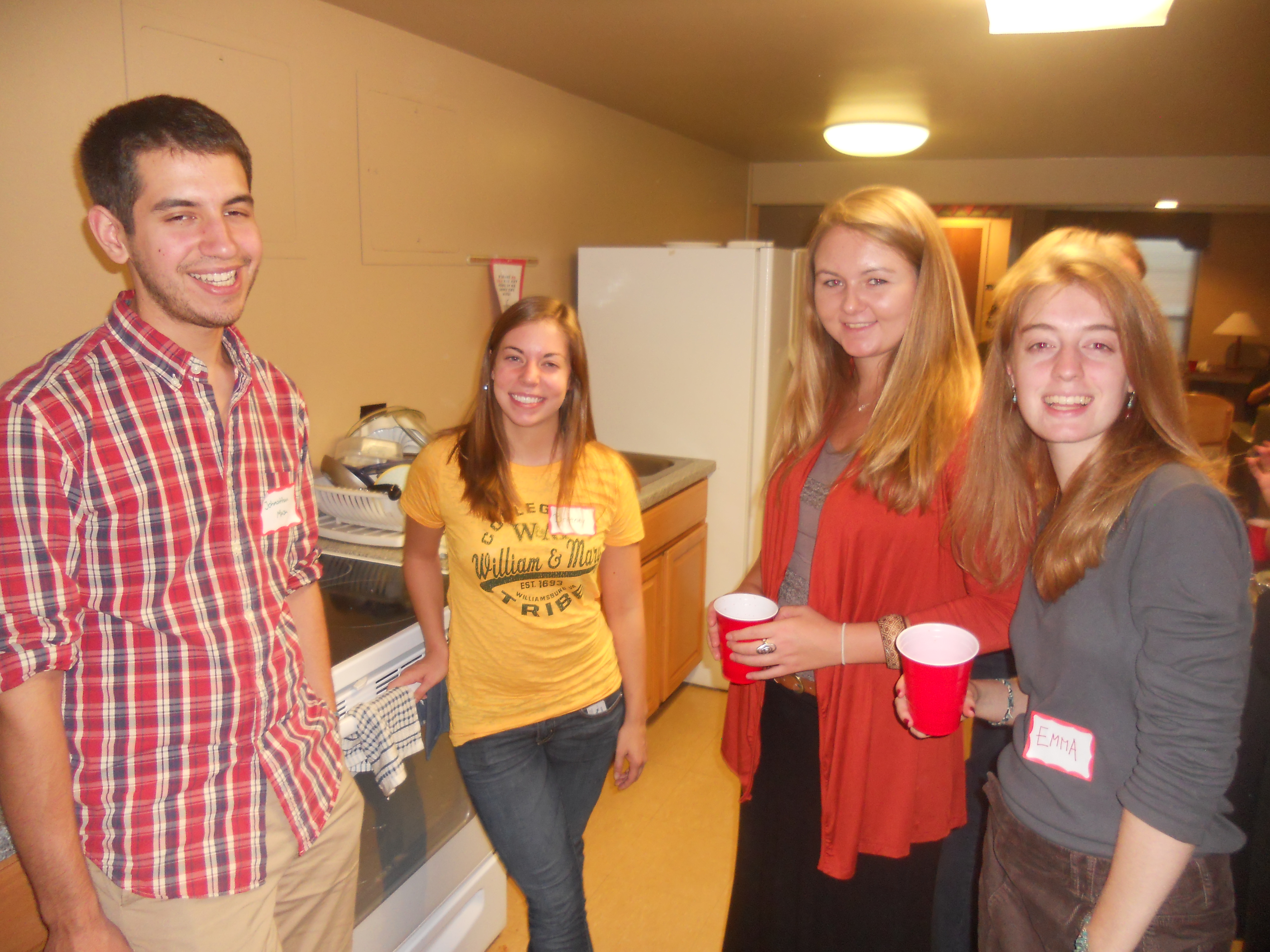



































































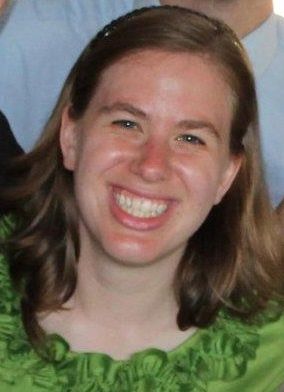

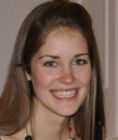







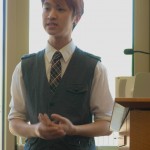
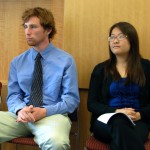
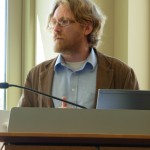

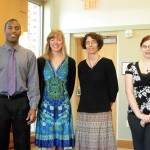
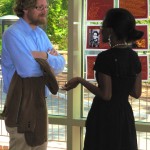
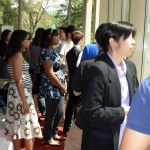









![Plaza de armas [Main Square], Cusco, Peru Plaza de armas [Main Square], Cusco, Peru](http://globalvoices.wm.edu/files/2011/11/plaza-de-armas-225x300.png) “This summer I had the opportunity to travel to Peru with a Charles Center grant to conduct a seven-week research project. This investigation focused on appropriations of Quechua, a South American indigenous language with 8-12 million speakers, in processes of identity construction in contemporary Peru. After an independent study last spring, six weeks of Quechua courses and interviews in Cuzco, and a week of bibliographical research in Lima, I decided to concentrate my analysis on the Quechua-Spanish dictionary prepared by the Academia Mayor de la Lengua Quechua (High Academy of the Quechua Language), an institution charged with regulating the Quechua language and promoting its usage in Peru. As Quechua has remained in a subordinate position to Spanish since the conquest and is now stigmatized as “rural peasant speech,” this effort would presumably be a positive development; however, the AMLQ relies on an ideological discourse in its dictionary that incorporates “imperial Quechua”, an elite dialect of Quechua associated with the Incan empire, into national identity while excluding the contemporary indigenous speaker of Quechua from the definition of the nation.
“This summer I had the opportunity to travel to Peru with a Charles Center grant to conduct a seven-week research project. This investigation focused on appropriations of Quechua, a South American indigenous language with 8-12 million speakers, in processes of identity construction in contemporary Peru. After an independent study last spring, six weeks of Quechua courses and interviews in Cuzco, and a week of bibliographical research in Lima, I decided to concentrate my analysis on the Quechua-Spanish dictionary prepared by the Academia Mayor de la Lengua Quechua (High Academy of the Quechua Language), an institution charged with regulating the Quechua language and promoting its usage in Peru. As Quechua has remained in a subordinate position to Spanish since the conquest and is now stigmatized as “rural peasant speech,” this effort would presumably be a positive development; however, the AMLQ relies on an ideological discourse in its dictionary that incorporates “imperial Quechua”, an elite dialect of Quechua associated with the Incan empire, into national identity while excluding the contemporary indigenous speaker of Quechua from the definition of the nation.
 Students in Jennifer Taylor’s Freshman Seminar, “The Berlin Wall,” are researching cinematic and literary depictions of life in the former German Democratic Republic and finding some surprises. Many texts they are reading paint a bleak picture of oppression and state control behind the iron curtain that is familiar to readers in the post-Cold War era. Other texts, though, suggest that, for many East Germans, life was in many ways the same as it is anywhere. Reacting to Peter Schneider’s 1982 West German novel about life in the divided Berlin, The Wall Jumper: a Berlin Story, freshman Abby Hunter expressed her surprise that one character moves from West to east Berlin, “This part was interesting to me because… history classes have painted East Berlin as a horrible, awful, dark place that no one wanted to live in.” The students in the seminar are exploring the kind of contradictions Abby points out as well as questions about representation and textual authority; everyone is engaged in writing a 10 page research project on a topic connected to some aspect of the GDR.
Students in Jennifer Taylor’s Freshman Seminar, “The Berlin Wall,” are researching cinematic and literary depictions of life in the former German Democratic Republic and finding some surprises. Many texts they are reading paint a bleak picture of oppression and state control behind the iron curtain that is familiar to readers in the post-Cold War era. Other texts, though, suggest that, for many East Germans, life was in many ways the same as it is anywhere. Reacting to Peter Schneider’s 1982 West German novel about life in the divided Berlin, The Wall Jumper: a Berlin Story, freshman Abby Hunter expressed her surprise that one character moves from West to east Berlin, “This part was interesting to me because… history classes have painted East Berlin as a horrible, awful, dark place that no one wanted to live in.” The students in the seminar are exploring the kind of contradictions Abby points out as well as questions about representation and textual authority; everyone is engaged in writing a 10 page research project on a topic connected to some aspect of the GDR.






























 A new project at William & Mary is the Virtual Library of Freedom, a group started by William & Mary alumna Hannah Thornton ’10.
A new project at William & Mary is the Virtual Library of Freedom, a group started by William & Mary alumna Hannah Thornton ’10.



 Last Spring, I spent an unforgettable semester abroad at John Cabot University in Rome. Although my courses at the university and my daily life in a foreign country allowed a certain level of immersion, I was nevertheless determined to experience the more intimate aspects of Italian culture. I decided that an internship would be the perfect complement to enrich my semester, and John Cabot University put me in contact with several potential positions. By mid-January, I secured an internship working in the studio of the American Contemporary Artist, Joseph Kosuth on the historic Tiber Island. As an Art History major, the internship was an absolute dream! Joseph Kosuth is one of the fathers of conceptual art and his exhibitions have been featured at museums such as the Georges Centre Pompidou, the Guggenheim, the Louvre and the MoMA. He is known best for his philosophically inspired works, such as One and Three Chairs (1965), and artworks which deal with language and its interpretation.
Last Spring, I spent an unforgettable semester abroad at John Cabot University in Rome. Although my courses at the university and my daily life in a foreign country allowed a certain level of immersion, I was nevertheless determined to experience the more intimate aspects of Italian culture. I decided that an internship would be the perfect complement to enrich my semester, and John Cabot University put me in contact with several potential positions. By mid-January, I secured an internship working in the studio of the American Contemporary Artist, Joseph Kosuth on the historic Tiber Island. As an Art History major, the internship was an absolute dream! Joseph Kosuth is one of the fathers of conceptual art and his exhibitions have been featured at museums such as the Georges Centre Pompidou, the Guggenheim, the Louvre and the MoMA. He is known best for his philosophically inspired works, such as One and Three Chairs (1965), and artworks which deal with language and its interpretation. worked, I had an excellent view of a Ponte Fabricio, a Roman bridge that has been standing since 62 BC. Only in Rome would I be able to work with a cutting-edge contemporary artist, who has a studio situated among ruins from centuries before.
worked, I had an excellent view of a Ponte Fabricio, a Roman bridge that has been standing since 62 BC. Only in Rome would I be able to work with a cutting-edge contemporary artist, who has a studio situated among ruins from centuries before.

























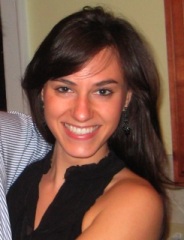


 Thursday, April 21st, 4:00 PM, Washington 315
Thursday, April 21st, 4:00 PM, Washington 315


 The
The 










 The thousand-year-old Spanish pilgrimage is the setting for “The Way,” a new film written and directed by Emilio Estevez and starring Martin Sheen. Thanks to the efforts of William & Mary Professor
The thousand-year-old Spanish pilgrimage is the setting for “The Way,” a new film written and directed by Emilio Estevez and starring Martin Sheen. Thanks to the efforts of William & Mary Professor 
 From the 1530s on, the city of Dieppe in Normandy became an important center of cartography and later on of hydrography. Dieppe was at the time one of the most important port for French international expeditions: the city sent commercial ships to Newfoundland, Brazil, the West African coast and as far east as Indonesia. The Dieppe maps of the mid-sixteenth century generally took the form of world atlases or of large world maps, all richly illustrated with lavish miniatures. These maps were hand drawn and painted; their large scales made them useless for navigational purposes. In this talk I propose to explore what we know about a set of Dieppe maps from the 1540s and 1550s: why were they created? What do we know about their circulation? Where did the possible models for their illustrations come from? I will in particular explore the possible connections between the advent to the throne of Henri II in 1547 and the apparent increased production of such maps in the latter half of the 1540s.
From the 1530s on, the city of Dieppe in Normandy became an important center of cartography and later on of hydrography. Dieppe was at the time one of the most important port for French international expeditions: the city sent commercial ships to Newfoundland, Brazil, the West African coast and as far east as Indonesia. The Dieppe maps of the mid-sixteenth century generally took the form of world atlases or of large world maps, all richly illustrated with lavish miniatures. These maps were hand drawn and painted; their large scales made them useless for navigational purposes. In this talk I propose to explore what we know about a set of Dieppe maps from the 1540s and 1550s: why were they created? What do we know about their circulation? Where did the possible models for their illustrations come from? I will in particular explore the possible connections between the advent to the throne of Henri II in 1547 and the apparent increased production of such maps in the latter half of the 1540s.

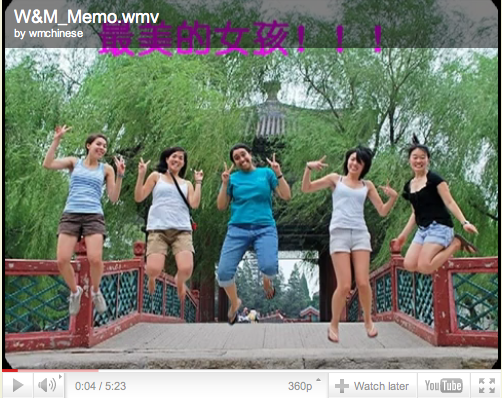
 When I got to college, I’d completed my language proficiency requirement and was fully prepared to stop taking French, and in fact I didn’t take any French my first semester at William and Mary. However, I can honestly say that restarting French was one of the best decisions I’ve made since arriving on campus. I’ve learned first-hand that speaking French has wide-ranging benefits in many areas of study outside just grammar and literature.
When I got to college, I’d completed my language proficiency requirement and was fully prepared to stop taking French, and in fact I didn’t take any French my first semester at William and Mary. However, I can honestly say that restarting French was one of the best decisions I’ve made since arriving on campus. I’ve learned first-hand that speaking French has wide-ranging benefits in many areas of study outside just grammar and literature.